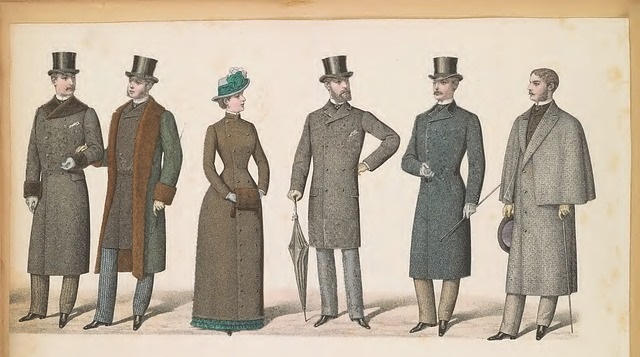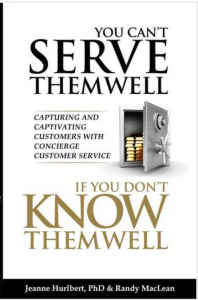
The world has been changing for distributors, but the world has always been shifting and changing for businesses. Here’s one example of past disruption and change, and how it impacted business, and how to sometimes see the “opportunity of change.”
Baron Rothschild, scion of the renowned banking family, gave the famously-macabre admonition to “buy when there is blood in the streets.” Whether or not you view this as sound investment advice, the statement highlights the opportunity that times of great social change bring. Business-people who are savvy enough to avoid panic in times like these will reap the rewards of that opportunity.
I hold a PhD in sociology, a discipline that emerged in another time of rapid change and social upheaval. The Industrial Revolution of the late 18th and 19th centuries transformed not just the way in which we produced goods but also the very fabric of society. A combination of “push” factors, including policies such as the Enclosure Acts, and “pull” factors like the emerging urban factory system fueled unprecedented rural-to-urban migration. Every aspect of social life—from family structure to education to political dynamics to religion—underwent fundamental challenge and change. Those who lived through that era became, for the first time in human history, acutely aware of social change. Why was that new? Because up until that point, the pace of social change in society had generally been so slow that most individuals remained largely unaware of it. Suddenly, then, society saw not just awareness of social change but also the need to adapt to it.
Given this profound social transformation—a transformation not unlike the disruptive environment we’re experiencing right now—it’s not surprising that a discipline whose focus is to understand, explain, and predict the nature of social change and social structure emerged. That discipline, sociology, was founded in part by a 19th-century German named Max Weber. Weber’s work, particularly his organizational insights, proved so consequential that it continues to inform our understanding of social organization even today. Sociology, and specifically Weber’s work, can help us understand and navigate the disruptive environment in which we are now required to operate.
One of the reasons that Weber’s analysis has had such staying power is because he recognized the importance that bureaucracy would play in an increasingly complex society. Although the term bureaucracy often carries negative connotations today, it actually denotes a way of organizing to get things done efficiently. Weber recognized that as societies, governments, and businesses reached increasing size and complexity, bureaucratic systems would be necessary to administer those organizations. Why? Because bureaucratic systems bring two key benefits: specialization and division of labor. The growth of bureaucracy was, for Weber, part and parcel of the increasing rationalization of society, in which social life increasingly depended not upon personal relationships but instead upon rational principles and systems of organization, and upon economic transactions. (Weber, Max. 1978. Economy and Society. Berkeley, CA: University of California Press.)
But Weber also recognized and described the “dark side” of bureaucracy and rationalization. Although he viewed bureaucracies as inevitable and recognized their advantages for achieving an organization’s goals, he also warned that bureaucracy could become an inefficient “iron cage” that could frustrate both the individuals who worked within bureaucratic systems and the individuals—like your customers—who dealt with them. The very organization that could, and should, increase organizational efficiency and goal attainment could, in many cases, create inefficiencies that subverted their success. Most wholesale distribution companies today, even those that remain family owned, are of sufficient size and scale to embody characteristics of bureaucracy. Yet there are many ways in which your companies may actually have under leveraged specialization and division of labor within your organization, missing the benefits that bureaucracy can bring. But rest assured . . . We can change this!
We can help you learn strategies to free yourself from Weber’s “iron cage” so that you can reap the benefits of specialization and division of labor while still enjoying an organizational culture that rewards your employees and benefits your customers.
(header image source: pixabay.com)
 Want to learn more?
Want to learn more?
This blog post is based off material from my book with Randy MacLean, “YOU CAN’T SERVE THEM WELL IF YOU DON’T KNOW THEM WELL: Capturing and Captivating Customers with Concierge Customer Service™”
You can get the first two chapters for FREE here.
If you’d like a full copy of the entire book, you can get it here.
 Dr. Jeanne Hurlbert, President of Hurlbert Consulting is an expert in sociology and survey research. After spending more than 25 years in academia, she now uses her extensive behavioral science expertise to help companies like yours distinguish yourselves through customer service. What sets her approach to customer service apart is that she begins by helping companies meld research and marketing to find out exactly
Dr. Jeanne Hurlbert, President of Hurlbert Consulting is an expert in sociology and survey research. After spending more than 25 years in academia, she now uses her extensive behavioral science expertise to help companies like yours distinguish yourselves through customer service. What sets her approach to customer service apart is that she begins by helping companies meld research and marketing to find out exactly
(a) what their customers want and
(b) how well they’re succeeding in giving customers what they want.
You can schedule a consult with her by going to www.ConciergeCustomerService.com; you can call her at 888-590-9677; or send an email here. And, if you’d like to complete her complimentary assessment to see how well you’re doing in knowing and serving your customers well, just go to www.FixYourService.com.





